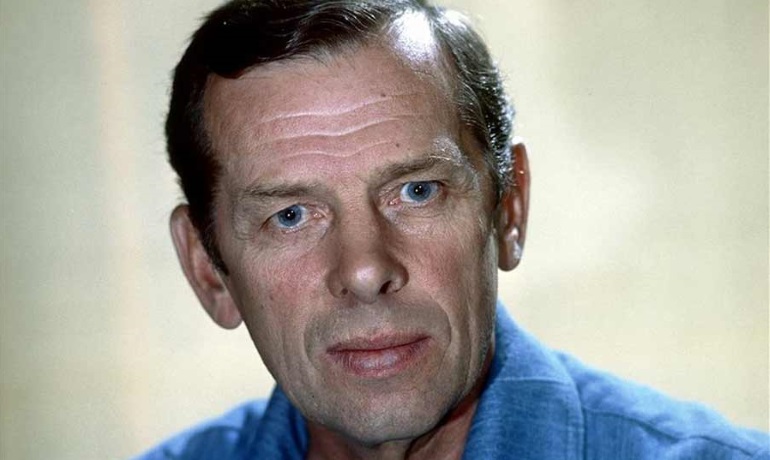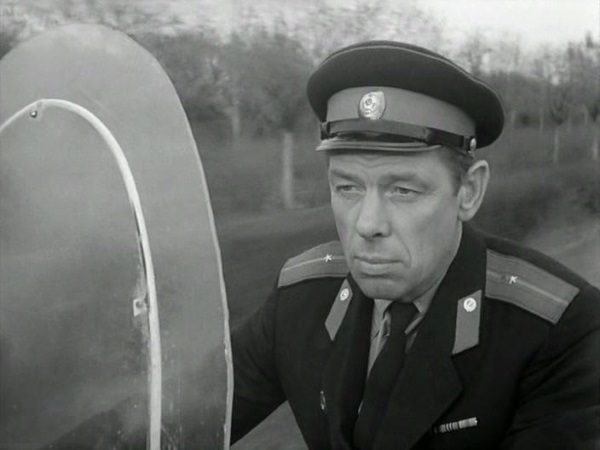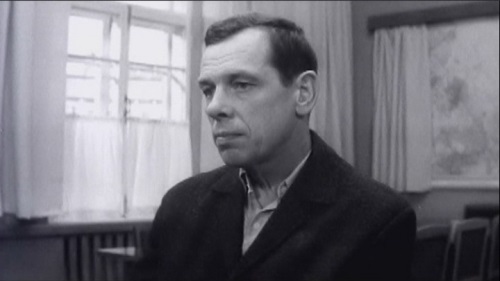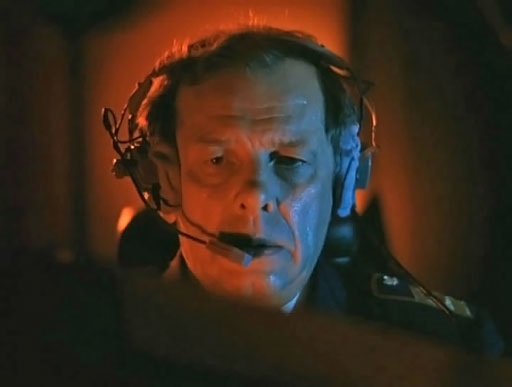
Sergei Miroshnichenko’s documentary “Zhzhonov. Russian Cross” tells the story of the protagonist’s struggle and survival as a human being. It was only many years later that Georgiy Zhzhonov would receive the major state rewards, including the Order of Lenin. He was still alive, when a monument to him was unveiled in Chelyabinsk. Yet, the first half of his life was filled with suffering and deprivation of the scale no writer or movie director could imagine.
Zhzhonov’s parents were from a peasant family from the Tver Region. Having arrived in the big city, his father never managed to become rich, although eventually he did end up having his own bakery. He had five kids with his first wife, and became the father to another five after her death – these with his second wife, Georgiy’s mother. Georgiy, as many of his generation, graduated seven grades only. And then he went on to study acrobatics in Leningrad College of Circus and Estrada Arts. Simultaneously he started to perform in a gilly – with his friend they put together a routine titled “Chinese Table”.
During one of the performances, movie director Eduard Ioganson noticed him and invited to play the part of Vetrov the tractor driver in the film “Hero’s Mistake”. This happened in 1932, and this work set the stage for his acting career. Zhzhonov applied to the Leningrad Theatrical School to study under Sergei Gerasimov, an acclaimed director and one of the best pedagogues, who raised a host of national movie stars. Georgiy Zhzhonov went to play another part in Ioganson’s “Crown Prince of the Republic”, and even in the legendary “Chapaev” by Vasilyev brothers. Eventually, his role as Furmanov’s orderly would not make it into the final cut of the film, but it did grant the actor with experience.
Since he his early year, Georgiy Zhzhonov was drawn to literature. He wrote short stories and showed them to his mentor Gerasimov. And in later life, Zhzhonov would write memoirs of his prison camp days, novel “From Capercaillie to the Firebird”, and a series of stories.

In 1936, Zhzhonov’s brother Boris, a student of Leningrad University was arrested. It happened at the peak of repressions set off by the assassination of Sergei Kirov. Boris was accused of anti-Soviet activities and terrorist leanings. His parents and brother Georgiy were exiled to Kazakhstan. Georgiy, however, did not wish to proceed to his destination, and instead he headed to the set of “Komsomolsk” directed by Sergei Gerasimov in Komsomolsk-on-Amur.
For almost a week, he traversed the country in the same railcar with Nikolai Kryuchkov and Pyotr Aleynikov. They met an American diplomat on that train. And it was Zhzhonov who later who was charged with espionage and ties with a foreigner he barely knew.
In 1938, Georgiy was arrested and forced to confess. Sentenced to five years of prison, he ended up in Kolyma. There, he worked as a logger and gold miner. Somehow he survived, whereas his brother Boris died of exhaustion in Vorkuta. Another brother was put before the fire squad.
Right before the Victory Day, in spring 1945, Georgiy Zhzhonov was discharged on parole and sent off to work at the Magadan Theater. It was only in 1947 that he was fully released and went to Sverdlovsk, although he was banned from living in larger industrial cities. His release was paid possible thanks to the efforts by Sergei Gerasimov, who always fearlessly assisted his colleagues and apprentices in trouble.
While the local studio in Sverdlovsk was operating, Zhzhonov acted in films. In 1949, he was arrested again and exiled to Norilsk – finding a reason back then was fairly simple. He worked in the local drama theater until 1953. When Zhzhonov was finally exonerated he was already 38. He went to his native Leningrad, where he first got a job at the regional drama theater and then joined the Lensovet Theater while also playing cameos in films. It was only in 1966 that he drew attention to himself having played the compassionate traffic warden in Eldar Ryazanov’s comedy “Watch Out for the Automobile”. Throughout the movie, his character is in permanent pursuit of a weirdo by the name of Detochkin played by Innokenty Smoktunovsky. Incidentally, Zhzhonov and Smoktunovsky had met earlier at the Theater of Norilsk, where they both had been working.

Another lucky break was meeting the great director Yuly Karasik on the set of “The Man I Love”, in which Zhzhonov acted in the role of a widowed father of two sons. He had three daughters himself, each one from a different marriage. It did not go very smoothly at the Lensovet Theater. His relations with the theater’s director Igor Vladimirov soured, and Zhzhonov had to quit and even left the city. He moved to Moscow and joined the troupe of the Mossovet Theater, then led by the unique director Yuri Zavadsky. Once again, Zhzhonov was lucky to meet a talented person.
Zhzhonov’s best part is doubtlessly the spy in the 1966 film “Resident’s Mistake” by director Veniamin Dorman. The sequel “Resident’s Way” would appear four years later, with “Resident Is Back” and “End of the RESIDENT Project” released in the 1980’s.
Georgiy Zhzhonov became one of the all-time favorites, a truly popular actor. Another star role is that of Willy Stark in “All the King’s Men” by Alexander Gutkovich and Naum Ardashnikov, where his character climbs the ladder from a lawyer to governor.
In the screen version of the wartime novel “The Hot Snow” by Yuri Bondarev, Georgiy Zhzhonov played the part of General Bessonov and was awarded the Vasilyev Brothers State Prize of the RSFSR.

The series of strong roles was continued by aircraft TU-154 Captain Timchenko from the Soviet box-office hit Air Crew directed by Alexander Mitta. Facing an extreme challenge, the Soviet pilots work wonders, saving dozens of lives. Even the most hyped films today could but dream of the scale of success this movie had had – the entire nation watched it, and watched it again.
For a number of years, Georgiy Zhzhonov was a member on the human-rights Stalker Film Festival jury. And he did more than just watch the films, vote and present awards. He took Stalker around the country throughout the year; he spoke to audiences, who worshiped him; he was rough at times, speaking his mind. But he always respected his fans.
Now, at the Stalker festival they award the Georgiy Zhzhonov Special Prize. On the days of actor’s jubilee, his colleagues and relatives went to Norilsk where he used to work. And the organizers tried finding people who shared stage with him, those who saw him perform at the theater – alas, to no avail.
Svetlana Khokhryakova











